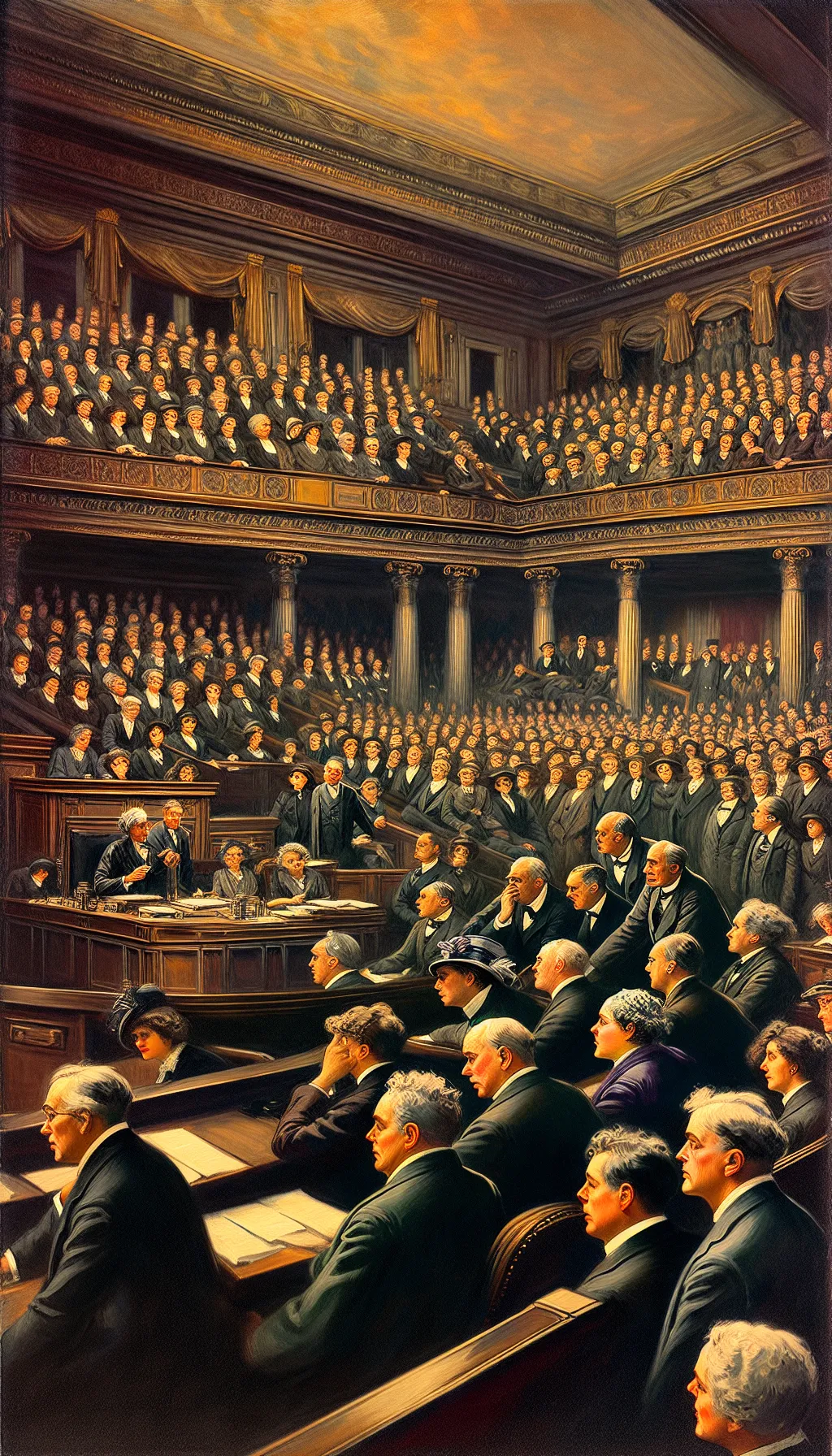United States – The Day Democracy Broadened: June 4, 1919
TLDR;
- Event: On June 4, 1919, the U.S. Senate passed the 19th Amendment, granting women the right to vote, after decades of suffrage movement efforts.
- Historical Context: The movement, initiated at the Seneca Falls Convention in 1848, saw women like Carrie Chapman Catt and Alice Paul leading marches and protests, some facing imprisonment.
- Legislative Journey: Following House approval on May 21, 1919, the Senate’s vote was a critical step, with full ratification achieved on August 18, 1920, after Tennessee became the 36th state to ratify.
- Impact: This amendment marked a significant expansion of democracy in the U.S., empowering women and setting a precedent for future equality movements.
–
Story
The air in the Senate chamber was electric with anticipation. On June 4, 1919, the United States Senate was about to make history. The echoes of suffragists’ voices, demanding equality and justice, reverberated through the halls of power. This was the day the 19th Amendment, granting women the right to vote, was put to a vote.

For decades, women across the nation had fought tirelessly for this moment. From the Seneca Falls Convention in 1848 to the relentless campaigns led by figures like Carrie Chapman Catt and Alice Paul, the struggle for suffrage had been long and arduous. Women had marched, protested, and even faced imprisonment, all for the right to have their voices heard in the democratic process.
As the votes were cast, the tension was palpable. The amendment had already passed the House of Representatives on May 21, 1919, but the Senate was a different battleground. Would the voices of millions of women finally be acknowledged? The answer came with a resounding yes. The Senate passed the 19th Amendment, a monumental victory for the suffrage movement.
This turning point was not just a win for women but a profound expansion of democracy itself. It paved the way for future generations to continue the fight for equality and justice in all forms. The ratification process would take another 14 months, culminating with Tennessee becoming the 36th state to ratify on August 18, 1920, but the Senate’s decision marked a pivotal moment in American history.
The passage of the 19th Amendment was more than a legislative act; it was a testament to the power of perseverance and the unyielding belief in equality. It was a day when democracy broadened its embrace, forever changing the landscape of American politics.
–
| Would a different outcome in the Senate have altered the course of women’s rights in America? |